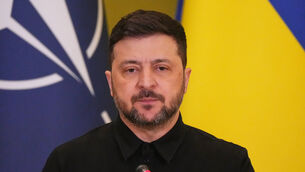African protection force on way to Darfur
A contingent of Rwandan troops is heading to Darfur this weekend – the first foreign soldiers to deploy in western Sudan, where thousands of people have been killed in violence some are calling a genocide.
Their main mission is to protect the 80 African Union observers already in the country, but with a somewhat vague mandate and continued Arab militia attacks on black African farmers, the Rwandans could easily find themselves defending civilians too – and drawn into the conflict.














